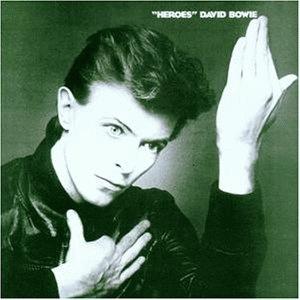
| Artist: | David Bowie |
| Title: | Heroes |
| Released: | 1977 |
| Label: | EMI Records |
| Time: | 49:17 |
| Producer(s): | David Bowie, Tony Visconti |
| Appears with: | Tin Machine |
| Category: | Pop / Rock |
| Rating: | *******... (7/10) |
| Media type: | CD |
| Purchase date: | 2003.01.04 |
| Price in €: | 9,10 |
| Web address: | www.davidbowie.com |